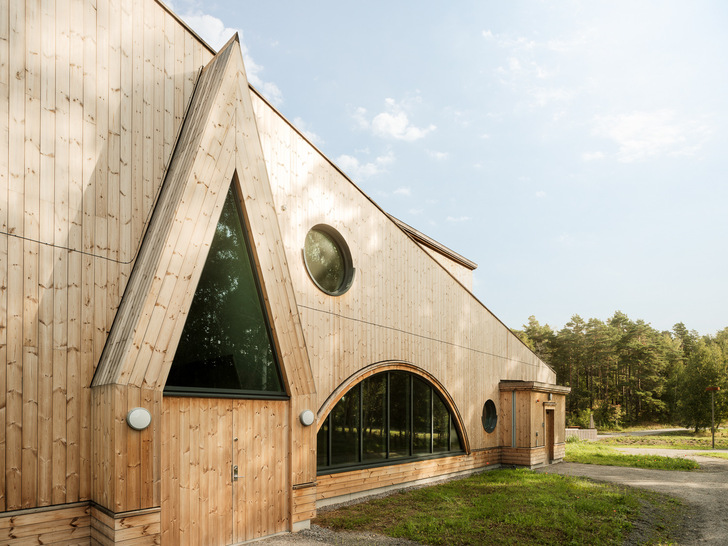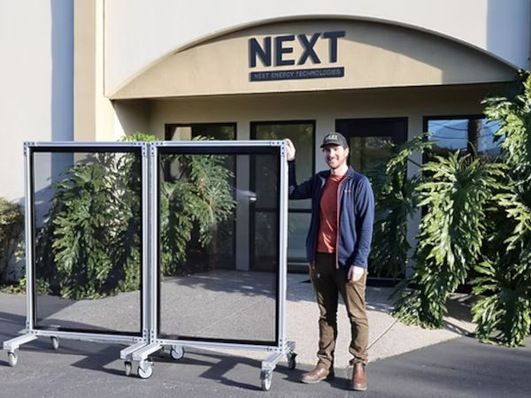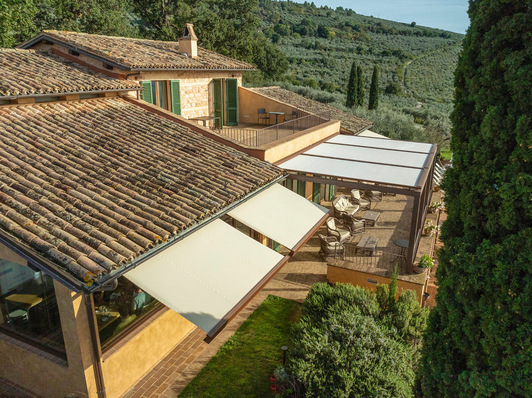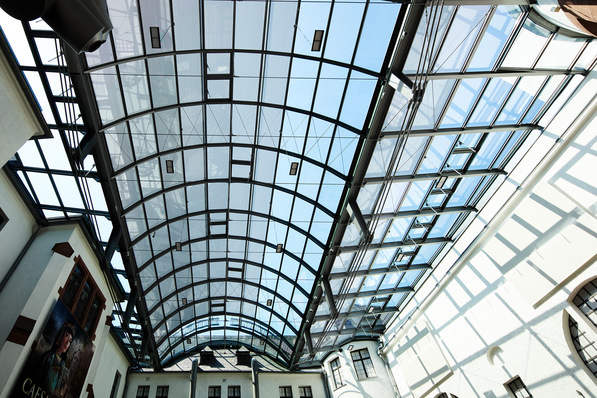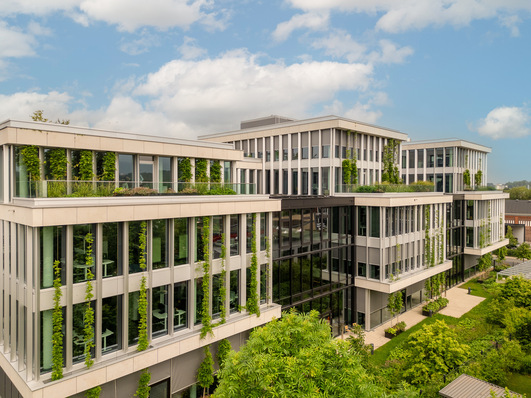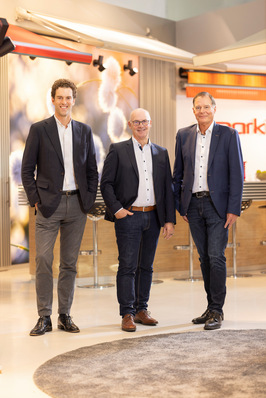With switchable ConverLight glass, the sun protection, i.e. the g-value, in glass facades and windows can be flexibly adjusted – and at the same time, it offers a degree of design freedom that was previously unthinkable in glass architecture.
Whether round, triangular or freely curved glass shapes, everything can be achieved with ConverLight glass. This gives planners and designers completely new possibilities for creatively designing building envelopes.
Why is ConverLight a special product?
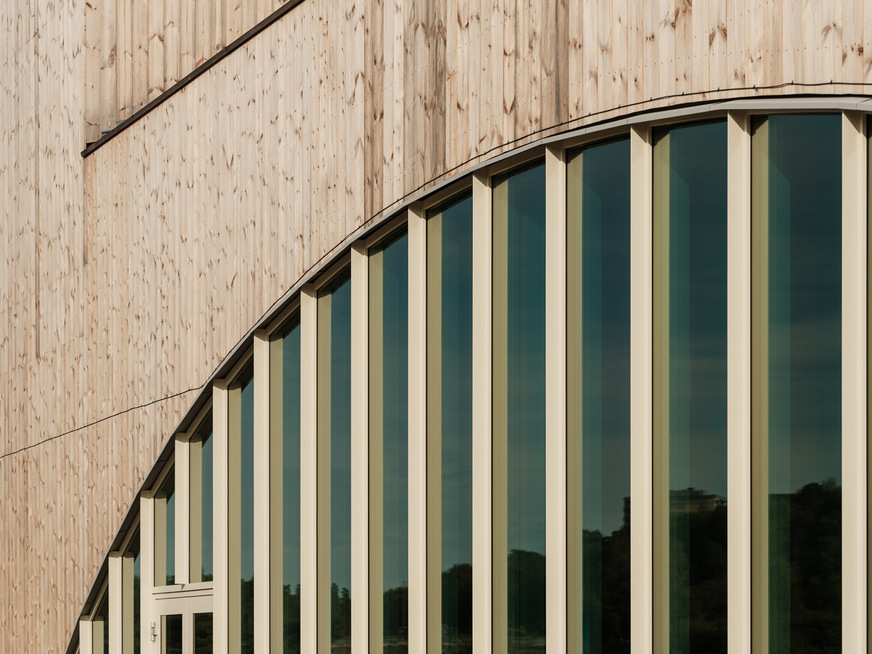
Johan Mohamed Dirfors
Electrochromic glass, which changes its light and heat transmission through electrical control, is not a completely new technology. However, ChromoGenics has made a decisive advance with ConverLight.
Between the glass layers is an electrochromic film that controls the degree of light transmission and energy input via an electrical supply. This allows the transmission of daylight to be controlled, significantly reducing energy consumption while maintaining transparency and visibility.
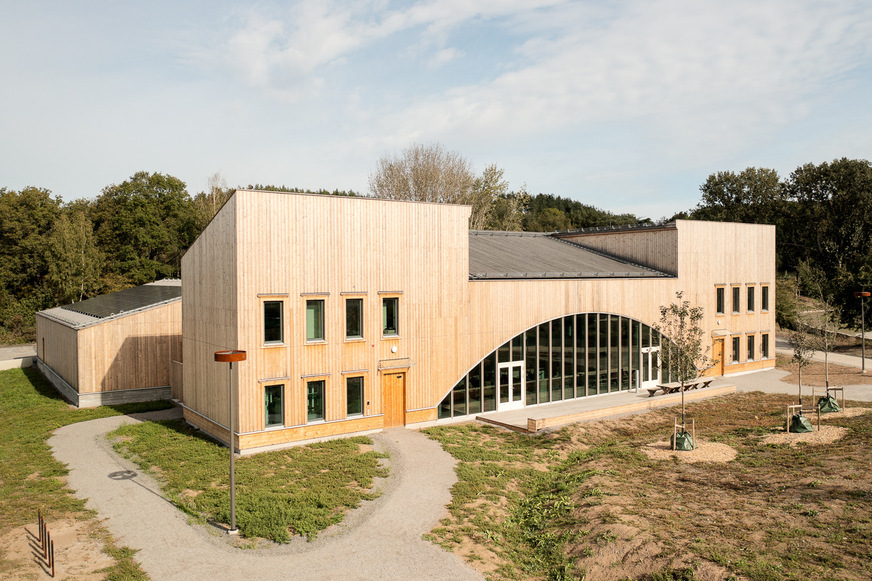
Johan Mohamed Dirfors
According to the suppliers, the flexible film makes ConverLight the only commercially available electrochromic glass product that can also be manufactured in a curved form. This adaptability allows glass designs and model panes to be realised that were previously considered technically unfeasible.
Creative freedom with glass redefined
Until now, architects often had to adapt their designs to the constraints of standardised materials. Rectangular or linear glass shapes dominated not for aesthetic reasons, but for technical ones. With the switchable film in ConverLight, completely new design approaches are now possible.
The electrochromic intermediate layer precisely regulates the tint of the glass and ensures a harmonious interplay of light and transparency.
About switchable ConverLight glass
ConverLight glass is manufactured as laminated safety glass (LSG) with the switchable ChromoGenics film and can be used directly in facades or combined in insulating glass with a double or triple structure.
The electrochromic glass can be seamlessly integrated into smart home systems or controlled manually. The ability to produce glass in almost any shape while offering variable sun protection opens up completely new creative possibilities for architects and planners.
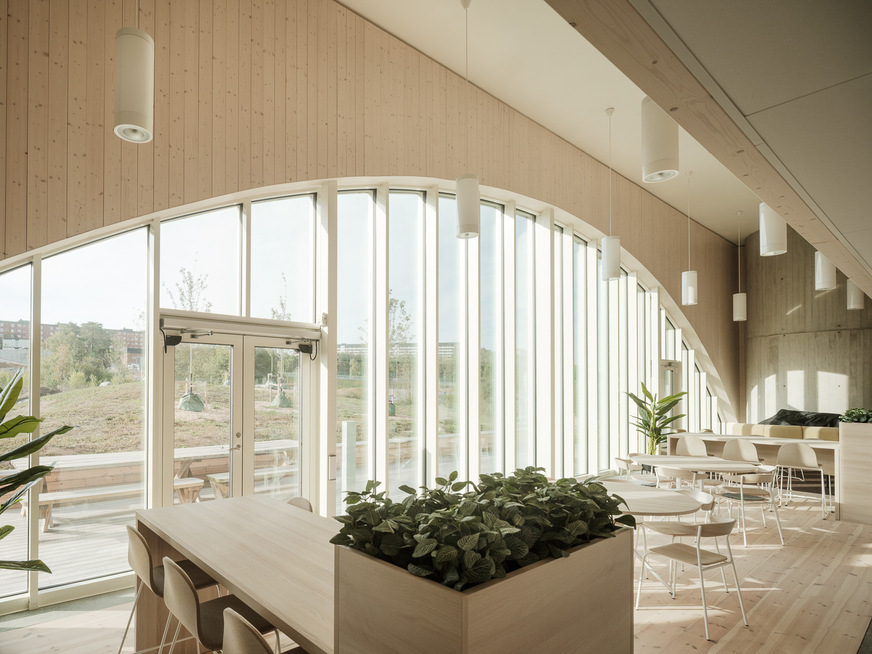
Johan Mohamed Dirfors







